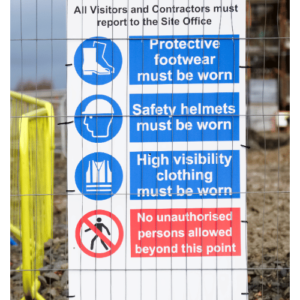Sustainable Construction Practices
Original price was: $200.00.$75.00Current price is: $75.00.
![]()
“Sustainable Construction Practices” is a self-paced online training program designed to equip professionals in the construction industry with the skills and knowledge necessary to incorporate sustainable methodologies into their projects.
Course Overview
“Sustainable Construction Practices” is a self-paced online training program designed to equip professionals in the construction industry with the skills and knowledge necessary to incorporate sustainable methodologies into their projects. This comprehensive course covers renewable materials, energy efficiency, low-carbon technologies, sustainability reporting, and compliance with international standards. Through a mix of theoretical frameworks, practical applications, and case studies, participants will learn how to make environmentally responsible and resource-efficient decisions throughout a building’s life-cycle.
Learning Outcomes
Upon completing this course, participants will be able to:
- Understand the key principles of sustainability in the construction industry, including economic, environmental, and social impacts.
- Identify, source, and apply renewable materials in construction projects while understanding their benefits and challenges.
- Implement energy-efficient designs and technologies, reducing the carbon footprint of construction projects.
- Utilize low-carbon technologies and understand their role in modern construction.
- Prepare sustainability reports and ensure projects comply with both international standards and local regulations.
- Analyze and learn from real-world case studies of successful sustainable construction projects.
Course Benefits
- Flexibility: Learn at your own pace and schedule, with access to all course materials online.
- Expert Knowledge: Gain insights from industry experts who bring real-world experiences and case studies to enhance learning.
- Practical Skills: Engage in practical exercises and workshops to apply what you’ve learned directly to your work.
- Certification: Earn a certificate of completion that can enhance your professional profile and credibility in the field of sustainable construction.
- Networking: Access to a community forum to discuss lessons and share insights with peers across the globe.
Course Outline: Sustainable Construction Practices
Module 1: Introduction to Sustainable Construction
- Session 1.1: Understanding Sustainability in Construction
- Definitions and importance of sustainability in the construction industry
- Historical context and evolution of sustainable construction
- Session 1.2: Principles of Sustainable Construction
- The triple bottom line: Economic, Environmental, and Social aspects
- Overview of sustainable construction principles
Module 2: Renewable Materials and Resources
- Session 2.1: Types of Renewable Materials
- Bamboo, reclaimed wood, recycled plastic, and other sustainable materials
- Benefits and challenges of using renewable materials
- Session 2.2: Sourcing and Certification
- Standards for sourcing sustainable materials
- Certifications and labels (e.g., FSC, PEFC)
Module 3: Energy Efficiency and Management
- Session 3.1: Designing for Energy Efficiency
- Passive solar design, insulation, and energy-efficient building envelopes
- Energy-efficient HVAC and lighting systems
- Session 3.2: Implementing Renewable Energy Solutions
- Solar, wind, and geothermal energy solutions in construction
- Case studies and real-world applications
Module 4: Low-Carbon Technologies in Construction
- Session 4.1: Innovations in Low-Carbon Construction
- Low-carbon concrete, green roofs, and sustainable urban drainage systems
- Session 4.2: Technologies and Practices for Carbon Reduction
- Tools and technologies for measuring and reducing carbon footprints
Module 5: Sustainability Reporting and Compliance
- Session 5.1: Environmental Impact Assessments (EIA)
- Procedures and importance of EIA in construction projects
- Session 5.2: Sustainability Reporting Frameworks
- Introduction to frameworks like GRI, CDP, and LEED
- Compliance with international standards and local regulations
Module 6: Case Studies and Practical Applications
- Session 6.1: Case Studies of Successful Sustainable Construction Projects
- Analysis of global examples and lessons learned
- Session 6.2: Workshop: Developing a Sustainable Construction Plan
- Participants develop their own sustainable construction project plan
Module 7: Future Trends and Innovations
- Session 7.1: Emerging Trends in Sustainable Construction
- The role of digital technology: BIM, AI, and IoT in sustainable construction
- Session 7.2: Challenges and Opportunities for Future Development
- Discussion on the future direction of the construction industry with respect to sustainability
Module 8: Certification and Closure
- Session 8.1: Review and Exam
- Summary of key concepts covered, preparation for certification exam
- Session 8.2: Certification Ceremony
- Distribution of certificates, feedback, and closing remarks
Reviews
- James L., Project Manager: “This course transformed the way I approach my projects. The modules on renewable materials and energy efficiency were particularly enlightening and immediately applicable.”
- Sandra T., Architect: “The flexible pacing was perfect for my busy schedule. The content is comprehensive and very up-to-date with current sustainability practices. Highly recommend for anyone looking to upgrade their skills.”
- Rajiv S., Construction Engineer: “I appreciated the depth of case studies and the practical workshop at the end. It was very useful to develop a sustainability plan and get feedback from industry experts.”
- Mia W., Sustainability Consultant: “Excellent course for anyone looking to understand the nuances of sustainable construction. The module on sustainability reporting was a game changer for my career.”
This program is ideal for construction professionals, engineers, architects, project managers, and anyone else interested in making construction more sustainable. Whether you’re starting in sustainability or looking to deepen your existing knowledge, this course provides valuable insights and practical tools to advance your career.





